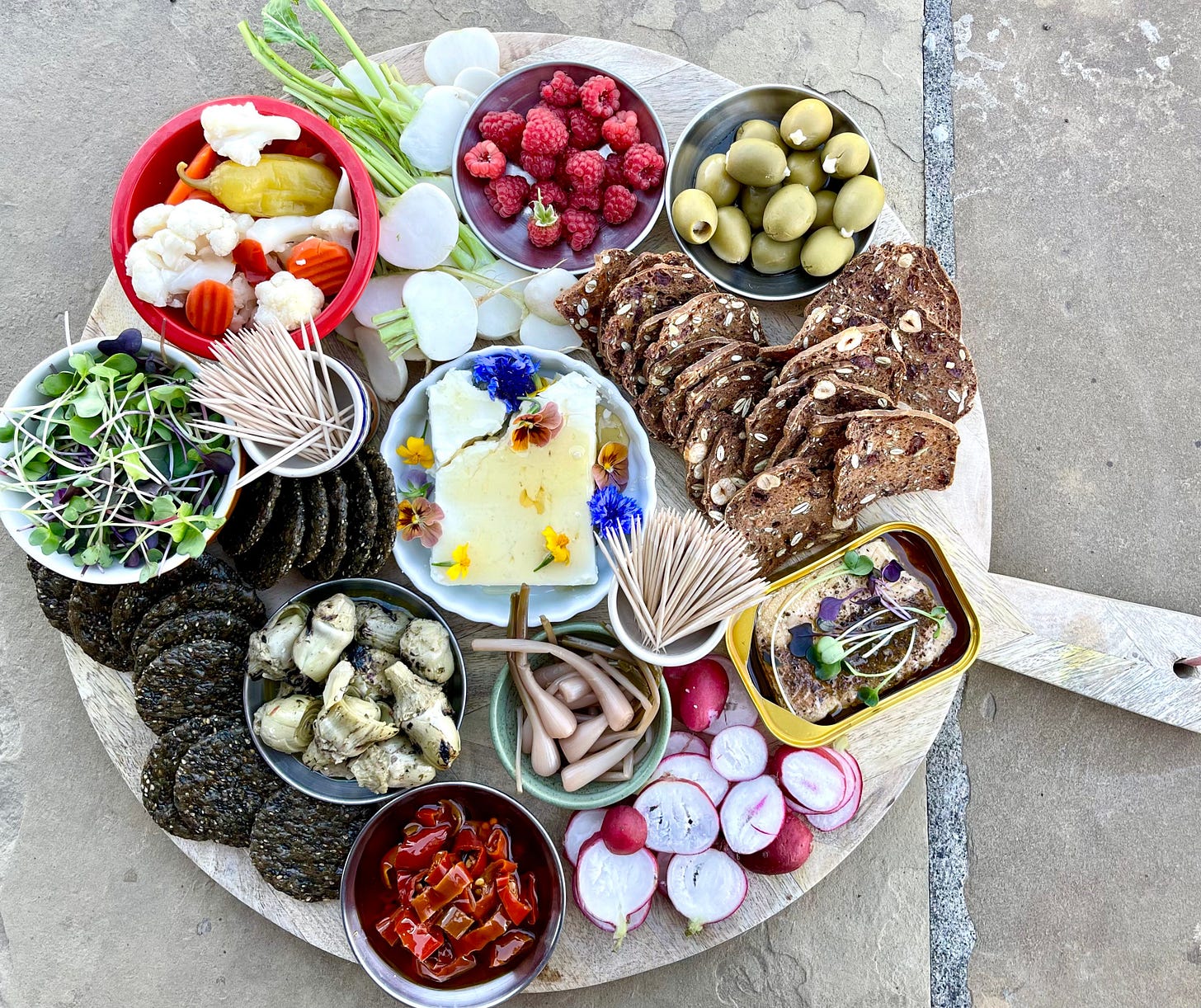Hello, Brain Health Ambassadors. It was fun to connect with some of you for an extra-virgin olive oil tasting on Wednesday. I’ve done lots of EVOO tastings but this was the first time doing one live on Instagram! The occasion: the official launch of the BHK EVOO, which started shipping this week. If you already ordered your stash, I am deeply grateful and can’t wait for you to try it! Watch the live and learn why my partner Dr. Ed Park at NeuroReserve and I chose to order just a small batch from our producer in Tuscany—it’s all about the best way to keep all those brain-healthy polyphenols intact.
Get your tin of BHK EVOO while supplies last and use the special BHK subscribers’ discount code BHKEVOO. (Founding Members, I shared a special discount code for you in this post.)
Last time we dove into the science of dairy products and their alternatives. I have been interested to learn how diverse everyone’s approach is to eating dairy. Some of you don’t eat dairy products at all and prefer plant-based alternatives. Others consume dairy in judicious amounts in line with the MIND and Mediterranean diet guidelines. And many of you have a mixed household of dairy consumers. With all the choices out there, there is definitely a dairy product to meet everyone’s needs.
Today we are shining our brain health lens on cheese.

Let’s get this out of the way first: cheese will never be a brain food on par with berries or leafy greens. But certain types of cheese may have been unfairly categorized as a brain-harming food.
As I went into last time, it makes sense that brain health guidelines limit cheese in an attempt to reduce saturated fat intake given the association of these foods with poor cognitive health. After all, the typical American diet is loaded with cheese. American households have tripled their cheese consumption since the 1970s as it has become common to snack on cheese, smother food with cheese, and use cheese to make foods creamy. Most people could benefit from cutting back.
It also makes sense, however, that cheese as a food group is more complex than dairy products like butter and cream. Cheese is a hugely heterogenous food group running the gamut from the ultra processed stuff drizzled on nachos to minimally processed goat cheese. High-quality cheese can provide some nutritional benefits, such as protein, calcium, vitamins B12, D, and K, and even beneficial fatty acids and probiotics.
Now, based on some new data, the concept that all cheese is “bad for the brain” is being challenged. First, let’s be clear on what counts as a “high-quality” cheese.
The difference between high and low-quality cheese
It’s long been established that ultra-processed cheeses are some of the worst foods for the brain. So what makes “high-quality” cheese different? Look for cheeses that:





